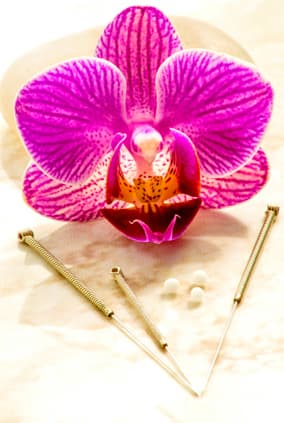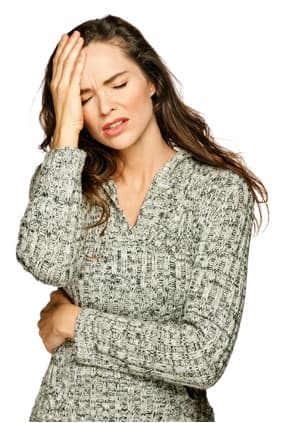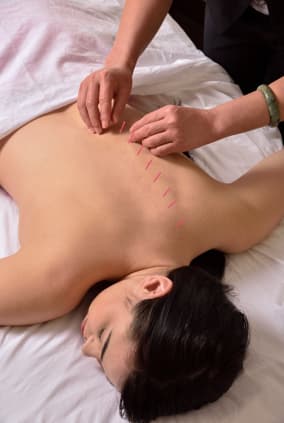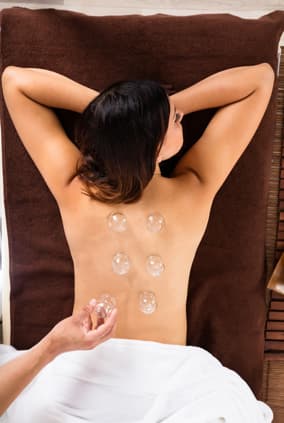
ACUPUNCTURE FOR MIGRAINES
According to the National Headache Foundation, as many as 28 million Americans suffer from migraine headaches each year. Migraine headaches are also one of the leading causes of time missed from work. It is estimated that migraine sufferers lose more than 157 million workdays each year, leading to a loss of approximately 50 billion dollars per year due to absenteeism and medical expenses caused by headache. An additional four billion dollars a year is spent on pain relievers for migraines and other headaches, but many of these remedies either do not work as needed, or simply mask an underlying condition.
In one of the largest studies of its kind to date, a team of investigators in Italy examined the effectiveness of acupuncture versus a variety of pharmacological therapies in treating migraines. Their results, published in a recent issue of the Journal of Traditional Chinese Medicine, revealed that patients given acupuncture experienced fewer migraine episodes, missed fewer days from work, and suffered no side effects compared to patients on conventional drug therapy. They also found acupuncture to be more cost-efficient, estimating a savings of hundreds of millions of dollars in private and social health expenditures if it were used to treat headaches alone instead of drugs.
A total of 120 subjects with a history of migraine headaches (without aura) were divided into two treatment groups of 60 patients each. The first group was treated with acupuncture (a maximum of three courses of 10 treatments twice a week, with a one-week break between each course).
The second group of patients received drug therapy consisting of two or three treatments using a variety of pharmaceutical products (flunarizine; nimodipine; dihydroergotamine; lisuride; sumatriptam; or amitriptiline). A subgroup of pharmaceutical patients received a drug called longastatine, along with electrical stimulation.
RESULTS
Statistical analysis of the groups found that acupuncture improved the symptoms of migraine without aura "more significantly" than any type of pharmacological therapy.
One of the most significant aspects of the study was that even though patients were asked to document any side-effects from treatment, none were reported by participants in the acupuncture group, leading to the conclusion that "the total absence of side-effects after acupuncture treatment can be affirmed."
Patients in the drug therapy group did not appear to fare as well. Of the 60 patients given pharmaceuticals, over three-quarters - 47 - reported side-effects ranging from nausea and diarrhoea to flatulence and burning sensations, unwanted weight gain of 3-4 kilograms; difficulty breathing, nausea, stuffiness in the chest, and occasional vomiting.
HOW DOES ACUPUNCTURE WORK?
The basis of acupuncture is an energy force known as qi (roughly pronounced “chee”). A person’s health is influenced by the flow of this energy, or qi, in the body. If the flow of qi is insufficient, unbalanced or interrupted, illness may occur.
Qi travels throughout the body along pathways called “channels.” The acupuncture points are specific locations where the channels are accessible and where qi is easily directed by the placement of needles, moxibustion or acupressure. Acupuncture is used to balance the opposing forces of yin and yang, keep the normal flow of qi unblocked, and maintain or restore health to the body and mind.
While acupuncture may be most popular for its effectiveness in alleviating pain, it also helps treat allergies / asthma, fatigue and sleep disorders, arthritis, PMS, digestive disorders, addictions and much more.
There have been several proposed scientific explanations for acupuncture’s effects, primarily in regards to its effect on pain. Acupuncture points are believed to stimulate the central nervous system (the brain and spinal cord) to release chemicals into the muscles, spinal cord and brain. These chemicals either change the experience of pain or release other chemicals, such as hormones, that influence the body’s self-regulating systems. The biochemical changes may stimulate the body’s natural healing abilities and promote physical and emotional well-being.
Western science posits that there are three main mechanisms for acupuncture’s effects:
- Activation of opioid systems: Research has found that several types of opioids may be released into the central nervous system during acupuncture treatment, thereby reducing pain.
- Changes in brain chemistry, sensation, and involuntary body functions: Studies have shown that acupuncture may alter brain chemistry by changing the release of neurotransmitters and neurohormones. Acupuncture also has been documented to affect the parts of the central nervous system related to sensation and involuntary body functions, such as immune reactions and processes whereby a person’s blood pressure, blood flow and body temperature are regulated.
- Changes in blood flow: Acupuncture and Oriental medicine alters the circulation of blood to the affected area, resulting in removal of pain causing chemicals, and restoring normal function to the area being treated.
ALLEVIATING AND PREVENTING MIGRAINES
One way that a person can alleviate his or her migraines with acupuncture is to receive an acupuncture treatment at the time of the migraine. This will shorten the duration of the migraine and lessen the pain. However, a preventive approach is more effective. To do this, a series of eight to 10 acupuncture treatments, along with Chinese herbs is most effective. This, along with other lifestyle changes, should significantly improve a person's ability to ward off a migraine.
Acupressure tip: Press pointer fingers beneath cheekbones and parallel to pupils (Stomach 3) for one minute. Squeeze fleshy area between thumb and pointer finger (Large Intestine 4) for one minute for migraine headaches.
References
- NHF Headache Facts. Available from the National Headache Foundation (www.headaches.org).
- Liguori A, Petti F, Bangrazi A, Camaioni D, Guccione G, Pitari GM, Bianchi A, Nicoletti WE. Comparison of pharmacological treatment versus acupuncture treatment for migraine without aura - analysis of sociomedical parameters. J Tradit Chin Med 2000; 20(3):231-40.
Related Articles
Cosmetic Acupuncture
Want to feel refreshed, energized with younger looking skin? Look no further! Call Today and schedule a divine facial acupuncture session!
Treat Hair Loss Issues Naturally
Noticeable, diffuse hair thinning in women usually starts after menopause when the production of estrogen slows down dramatically or stops altogether.
Weight Management Program
After having tried all sorts of fad diets and pills most people are unhappy with their present weight. Visit our Weight Management Program and find about the Naturopathic Way To Better Health.
Boost Fertility Naturally
Are you or your partner having fertility issues? Improve your chances of getting pregnant by understanding, addressing and optimizing your hormones and wellbeing naturally.





